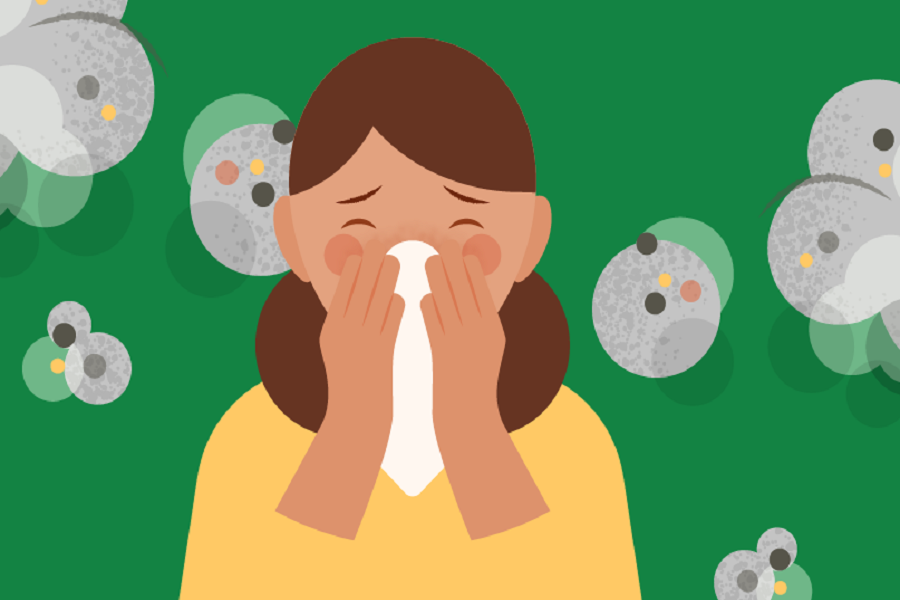Winter is not a unique season for allergies. In fact, we may have allergies during spring, summer or even fall. Season change can also lead to similar symptoms.
However, one thing about winter allergies is that it usually happens due to indoor allergens, which are substances that can cause allergies. During other times, the main factors for allergy are outdoor triggers, e.g. pollen, ragweed, etc.
But in winter, we are more inclined to stay home as much as possible and as such the exposure to indoor allergens increase, hence the allergy.
What triggers allergy
So what are the triggers of winter allergies? There are many factors, which, if present, can cause those annoying runny noses and watering eyes.
An airborne dust particle is one thing that is actually pretty common, especially if the house is carpeted. Carpets are notoriously difficult to clean, and when it is being cleaned, sometimes the dust particles become airborne, causing allergies in many people.
Let’s also not forget about tiny bugs known as dust mites. They often colonise our mattresses and bedding. Their droppings are pretty bad allergens.
Other culprits include skin flakes/dander, fungal growth in damp, humid places releasing spores in the air as well as cockroach faeces and shells
One question is can someone suddenly become allergic to something? It sounds weird but it happens. We may be exposed to something for a long time without feeling any problems, and then one day suddenly these allergy symptoms come rushing.
Symptoms
Winter allergy symptoms may be quite similar to cold. There is coughing, sneezing, runny nose, itchy and watery eyes. In serious cases, the patient may even feel very exhausted or anxious, experience rapid breathing, chest tightness or other life-threatening physical issues.
So as the symptoms are like cold, which is also not uncommon in winter, how can we be sure it’s allergies?
Usually, allergy symptoms last longer, e.g a few weeks. If the person has no previous history of allergies, it may be an indication they are suffering from a cold. Another distinguishing feature may be the appearance of fever, which usually does not accompany allergy symptoms.
Sore throat is often a feature of cold, along with body aches and pains. These are not typical of allergies. Also if the eyes are itchy, most likely it is due to allergy.
Simple remedy
If the symptoms are not severe, then simple remedies are often sufficient. Non-prescription antihistamines are very useful to combat the symptoms.
Rinsing the nose regularly with clean, distilled water is sometimes helpful. If someone has asthma, proper treatment must be ensured to avoid any exacerbation due to allergens. However, if the symptoms persist or become serious, it is advisable to consult a physician.
Cleaner the better
There are some things we can do to prevent winter allergens from gaining a foothold in our homes. As beddings and mattresses are fertile places for dust mites, it is imperative to clean them regularly in hot water (540° C) each week. We can also put additional casings over the pillows and mattresses.
Another proposition would be to use as few carpets and rugs as possible at home. For cleaning those, a suitable vacuum cleaner should be used. To minimise the risk of airborne particles, ideally, 30-50 per cent humidity needs to be maintained. For that, a dehumidifier can be used to take out the extra moisture from the air.
We should check all the damp places for any fungal growth. If found, it can be cleaned with water and a 5 per cent bleach solution. All leaks in the pipes, roof or bathrooms must be taken care of. Any cracks in the doors, windows or walls should be sealed.
Winter allergy is manageable. We need to follow preventive practices to reduce the risk. If symptoms appear, they are more like a quality of life issue and can be alleviated with home remedies. However, there may be times when we need to seek help from professionals.
Imtiaz Ahmed has completed MBBS from Dhaka Medical College.


